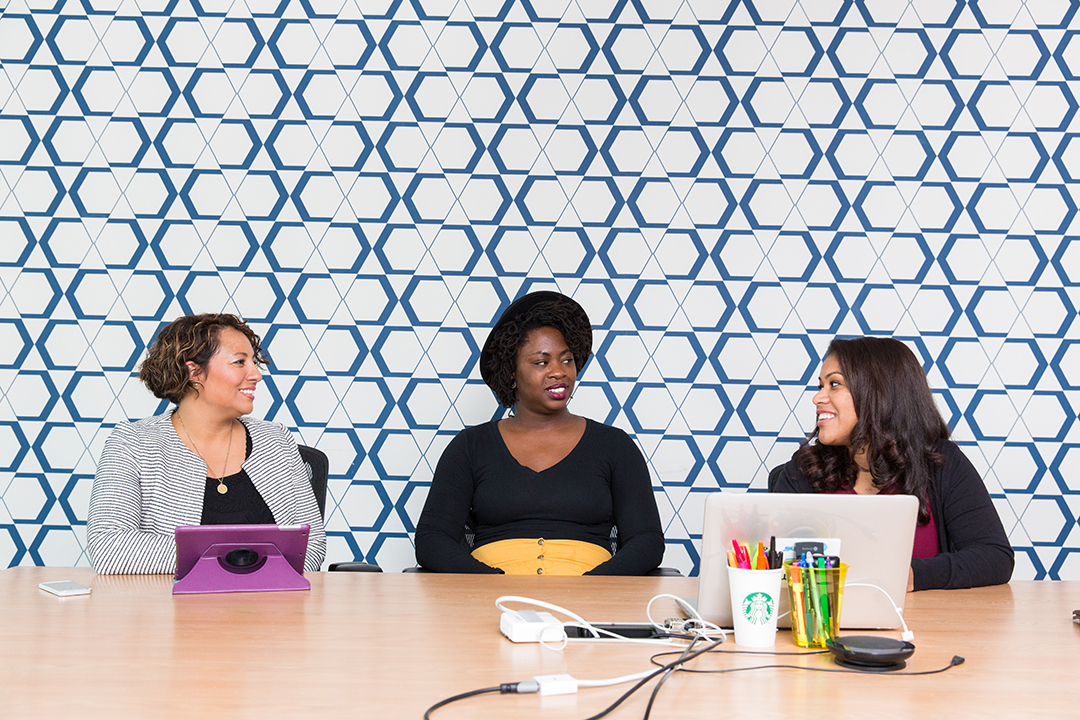No matter how prepared you are for an interview, waiting for your name to be called out with numerous potential questions flooding your mind and sweaty palms can be dreadful for anyone.
What will you answer about the employment gap in your resume? What was the word your recruiter kept reminding you of? What if you stammer while answering? So many questions and only one word to describe your overall state: “Stressed”.
This stress tempts you to run away from the waiting room and back under the covers to watch Netflix. Who needs a salary anyway?
We understand because we have been there. Facing an interviewer has never been easy for candidates, but it’s important not to let severe interview anxiety affect your chances of success.
This guide will help you manage your pre-interview anxiety and even harness it so you can easily land your dream job. But before we proceed, here are some statistics to prove that you are not alone in feeling anxious during an interview:
- 93% of candidates experience anxiety before their scheduled interview.
- 64% of candidates listen to music before appearing for an interview to relax.
- 29% of candidates claim that appearing for an interview is more horrifying than going for medical checkups.
- Most candidates start feeling nervous at least seven hours before the interview.
- 70% of candidates practice their answers by speaking out loud, and 62% of them prepare anecdotes in advance.
Why do candidates get nervous before a job interview?
When talking about interviews, not getting nervous is considered unusual as the interview carries the element of uncertainty with it. The fear of the unknown induces anxiety in candidates as you wonder if you will make a good impression, if there will be a good rapport and what the interviewer might ask you.
The human mind is trained to function in and manage certainties, so whenever there is an unknown factor, it keeps fluctuating from one opinion to another until you feed it with clarity. An interview is one such time when nothing is clear, and so comes stress and anxiety.
Here are some common reasons for pre-interview nervousness:
- Immense competition and time constraints.
- Performance or presentation anxiety.
- Lack of preparedness.
- The fear of meeting new people.
- Being worried about getting rejected due to communication failure despite having an impressive resume.
- Self-doubt or low self-esteem, also known as imposter syndrome.
- No prior or recent experience in facing an interview.
10 tips to calm your nerves before appearing for an interview
1. Do Your Research
Most anxiety related to job interviews results from not knowing what to expect. In such a situation, sometimes, just knowing that you are well prepared will give you the confidence to ace the interview.
You must:
- Research the company you are interviewing for.
- Research the company’s culture and expectations of the ideal candidate.
- Understand the job requirements.
- Analyse your CV.
Based on your research, you can then rehearse your responses around potential technical and skill-based questions the interviewer may ask.
The company’s website and some review sites might help you anticipate the interview questions they may ask you. You can watch some videos or take courses to understand the interview etiquette and way of answering.
But remember, don’t try to copy answers available on the web word by word. Instead, try to format them in your own words. You can ask your peers for better advice to crack interviews as well.
If you lack work experience, why not check out our article on How To Get an Admin Job with Zero Experience.
2. Practice! Practice! and Practice!
After thorough research, the next most vital step is practice. Read out your responses loudly a few times. The more you are familiar with your researched content, the less nervous you will feel in the interview.
The best way to practice is by conducting mock interviews with your friends or trusted colleagues- someone who is supportive and honest. Their feedback can help you understand the areas where you need improvement and eliminate baseless insecurities.
3. Know the Way
When it comes to preparation, knowing every “Can” and “Cannot” of the process is essential to perform your best. Find out the place and mode of the interview, and plan your travel to avoid any last-minute chaos.
If it is an online interview, make sure you have a proper internet connection and alternatives in case of some unexpected mishaps.
Carry all the necessary documents with you. Recheck your portfolio so you won’t forget anything important.
4. Know Your Interviewer
Knowing the number of people you will be meeting during the interview in advance will help you calm your nerves. Your preparation will be influenced by the meeting format – if it is a one-on-one or multiple-panel format. Have they explicitly said it will be a competency-based interview?
You can go through your interviewer’s LinkedIn profile to get a rough idea about the type of questions to expect or find a mutual interest that can help develop some ideas for small talk.

5. Sort out Your Outfit
Your manner of introduction during the interview counts. Make sure that you plan your outfit and keep it clean and ironed. Make sure that any makeup is subtle and that your nails are clean.
Ensure that your outfit is comfortable to wear and looks professional enough. It will help build a good first impression with your interviewer, even if you do have slightly shaky hands!
6. Rationalise Your Fear
Studies claim that your perspective makes the situation dreadful more than the situation itself. Try to figure out your negative thoughts and answer them confidently.
Remind yourself that you wouldn’t have reached the interview stage if your profile wasn’t competitive enough. Plus, the hiring manager will have gone through the exact same circumstances as you to get where they are. Don’t let self-doubt consume you.
7. Play the “Perspective” Game
Remember that your fear is self-induced primarily due to your perspective. Try to challenge your fear by reminding yourself that your interviewer is just another human like you.
Just as much as you need the job, they want to fill their vacancy quickly with a talented candidate. They are used to seeing nervous candidates and know how to put them at ease, and they will do the same with you.
Don’t force yourself too much. Whatever the outcome, you must know that it won’t be the end of the world, and you will have a lot of chances of performing better in the future.
8. How About Some Positive Self-Talk?
Psychologists believe that positive affirmations are the most powerful method of reframing your beliefs and actions. For instance, instead of saying, “I’m nervous about the interview,” saying, “I’m excited about the interview”, can make a real difference.
Try to visualise your feelings after the interview is over. Arrange a treat for yourself as a reward for facing the interview.
Buick Hamblin counsellor in Grantham, suggests that "before an interview, imagine the process unfolding successfully. Visualise calmness filling you, words flowing easily, and a positive outcome. Harness the power of your mind to transform stress into confidence."
9. Regulate Your Breathing
During stress, our breathing becomes shallow, and our heart rate quickens as we enter fight or flight mode. Breathing techniques can really help you relax before an interview and make your body feel safe.
There are many types of breathing techniques, but the simplest is “slow breathing,” which focuses more on a steady exhale until your lungs are empty. Doing this for a few minutes can help you regulate your heartbeat and feel calmer, reducing nervous energy.
10. The Cliché Advice - Relax
It is indeed easier to advise than do it, but it all boils down to this simple word: relax. Try mind-calming yoga, avoid last-minute cramming, watch a good movie, read a book or do anything that can put you in a good mood the night before your interview.
On the interview day, get up early, exercise, have a good breakfast and leave for your destination a little early to avoid any delays. Listening to relaxing or motivational music can also be beneficial.
On a final note
Interview and stress go hand in hand. You can neither stop interviews from happening nor escape them for long. The most practical action worth considering is to learn to manage your fears.
Here are some last minutes tips to consider:
- Don’t force yourself. Take a deep breath and walk around a bit to calm your nerves.
- Write down your thoughts on paper.
- Try sighing when deep breathing doesn’t work.
- Try to engage with other people or call your recruiter, mentor, best friends or anyone who can help you direct your thoughts. Talking to someone will gain momentum.
- If possible, don’t consume anything at least two-three hours before your interview.
- If you are too stressed, try washing your face with cold water.
Disclaimer: A little nervousness is good during an interview, but getting therapy or speaking to your GP about ways to reduce anxiety would be wise if your anxiety is interfering with every step of your career.
Oriel Partners Can Help You Find The Ideal Role For You
At Oriel Partners, we’re specialist recruiters matching excellent candidates to roles within the PA and secretarial field. Check out our current vacancies here. We’d love to help you find your next role.


